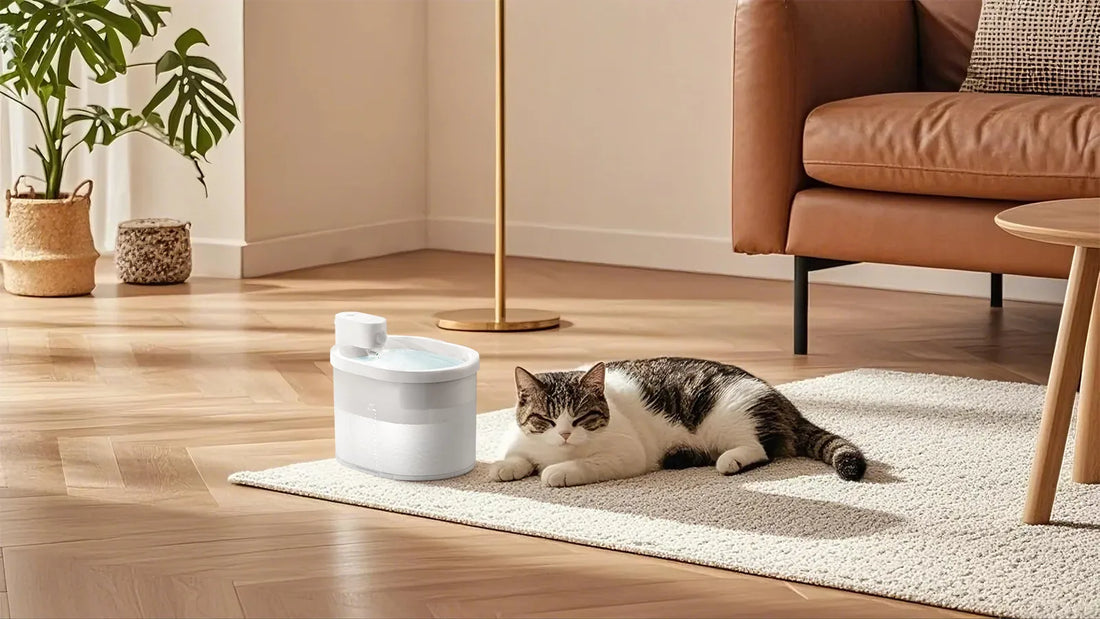If you’ve noticed your old cat drinking a lot of water and meowing more than usual, it’s natural to feel concerned. Cats are creatures of habit, and sudden changes in behavior can signal underlying issues. While some causes may be harmless, others could indicate serious health problems that require immediate attention. Understanding the reasons behind these changes is crucial for ensuring your feline friend’s well-being.
Why Is My Old Cat Drinking More Water?
Increased water intake, also known as polydipsia, is a common symptom in older cats. Several factors could contribute to this behavior:
- Kidney Disease: As cats age, their kidneys may not function as efficiently, leading to increased thirst.
- Diabetes: High blood sugar levels can cause excessive drinking and urination.
- Hyperthyroidism: An overactive thyroid gland can accelerate metabolism, leading to increased thirst.
- Urinary Tract Infections (UTIs): Infections can cause discomfort and prompt your cat to drink more water.
- Dehydration: Older cats may become dehydrated more easily, especially if they have underlying health issues.
Excessive Meowing in Older Cats
Meowing is a primary way for cats to communicate with their owners. However, excessive meowing in an older cat can be a sign of distress or discomfort. Possible reasons include:
- Pain or Discomfort: Arthritis, dental issues, or other ailments can cause your cat to vocalize more.
- Cognitive Dysfunction: Similar to dementia in humans, older cats may experience confusion and anxiety, leading to increased meowing.
- Hunger or Thirst: If your cat is drinking more water, they may also feel hungrier and meow to signal their needs.
- Attention-Seeking: Older cats may become more dependent on their owners and meow to seek comfort or companionship.
When to Seek Veterinary Care
While occasional changes in behavior are normal, persistent symptoms should not be ignored. If your old cat is drinking a lot of water and meowing excessively, it’s essential to consult a veterinarian. They can perform diagnostic tests to identify the root cause and recommend appropriate treatment. Early intervention can prevent complications and improve your cat’s quality of life.
How to Support Your Aging Cat
Caring for an older cat requires patience and understanding. Here are some tips to help your feline companion:
- Provide Fresh Water: Ensure your cat has access to clean water at all times.
- Monitor Diet: A balanced diet tailored to your cat’s age and health needs can make a significant difference.
- Create a Comfortable Environment: Soft bedding, easy access to litter boxes, and a quiet space can help reduce stress.
- Regular Vet Checkups: Routine visits can help detect and manage health issues early.
- Offer Mental Stimulation: Interactive toys and gentle play can keep your cat engaged and happy.
Your old cat drinking a lot of water and meowing excessively may be trying to tell you something important. By paying attention to these signs and seeking professional advice, you can ensure your beloved pet remains healthy and comfortable in their golden years. Don’t wait—take action today to give your cat the care they deserve.

![[🎃Halloween Sale]UAHPET Stainless Steel Self-Cleaning Cat Litter Box](http://www.uahpet.com/cdn/shop/files/1-cat-litter-box.jpg?v=1759128420&width=1600)












